
Marcel Aymé
Birth : 1902-03-29, Joigny, Yonne, France
Death : 1967-10-14
History
Marcel Aymé (29 March 1902 – 14 October 1967) was a French novelist and playwright, who also wrote screenplays and works for children.
Marcel André Aymé was born in Joigny, in the Burgundy region of France, the youngest of six children. His father, Joseph, was a blacksmith, and his mother, Emma Monamy, died when he was two years old, after the family had moved to Tours. Marcel was sent to live with his maternal grandparents in the village of Villers-Robert, a place where he would spend the next eight years, and which would serve as the model for the fictitious village of Claquebue in what is perhaps the most well-known of his novels, La Jument verte. In 1906 Marcel entered the local primary school. Because his grandfather was a staunch anti-clerical republican, he was looked down upon by his classmates, many of whose parents held more traditional views. Accordingly, Marcel was not baptized before reaching the age of eight, nearly two years after the death of his grandfather in 1908. Orphaned once more when his grandmother died two years later, he briefly lived with other family members before moving to Dole, a small town of the Franche-Comte region, to stay with an aunt and attend the Collège de l'Arc, where he demonstrated more ability in mathematics than in literature. His years at school there were an unpleasant experience he would never look back on fondly.
Despite ongoing issues with his health that had begun when he was a child, Aymé was able to perform his military service, which began in 1919, as part of an artillery unit in the occupied Rhineland. In 1923 he moved to Paris where he worked unsuccessfully at a bank, an insurance company, and as a journalist. Though he failed in his career as a reporter, his stint at the newspaper allowed him to discover his love of writing.
His first published novel was Brûlebois (1926), and in 1929 his La Table aux crevés won the Prix Renaudot. After the great success of his novel La Jument verte (1933), translated into English as The Green Mare, he concentrated mostly on writing and published children's stories, novels, and collections of stories. In 1935 he also started writing movie scripts. In theater, Marcel Aymé found success with his plays Lucienne et le boucher, Clérambard (1949), a farce, and Tête des autres (1952), which criticized the death penalty.
He died in 1967 and was buried in the Cimetière Saint-Vincent in the Montmartre Quarter of Paris.
One of Aymé's most famous short stories is Le passe-muraille or "The Walker-Through-Walls". At the age of 42, Dutilleul suddenly discovers that he has "the remarkable gift of being able to pass through walls with perfect ease". What begins as a novelty that gives him pleasure ends up pushing Dutilleul toward ever more sinister pursuits.
Visitors to Paris can see a monument in his honor at Place Marcel-Aymé, in the Montmartre Quarter. The statue is based upon his short story "Le passe-muraille" ("The Walker through Walls").
Source: Article "Marcel Aymé" from Wikipedia in English, licensed under CC-BY-SA 3.0.

Short Story
Three stories about the impact of three God's miracles in the medieval sense that happen to the film's heroes living in a post-communist society that, after half a century of atheism, re-learns about Christianity.

Short Story
Emile Dutilleul, 47 years old, lives a quiet and withdrawn life in Montmartre and works as an employee in an open-plan office with an insurance company. When he meets his new, lively colleague Ariane, Emile discovers not only his inner life, but also something monstrous. He has a superpower of which he had no idea: he can walk through walls ...

Novel

Writer
Jean-Marie Bigard plays Clérambard, a ruined squire, his family's slavery slave, cat taster, parish priest eater. Converted after an appearance of Saint Francis of Assisi, he becomes as violent in good as he was in evil. A tailor-made role! He no longer touches animals, even if they are insignificant, he finds purity in girls of joy, pleasure in destitution and he will preach this message on the roads, in a caravan, taking his family on its crusade of love .

Writer
In the not-too distant future, 17 year-old Tye and his family move to the burgeoning metropolis of Real City, where, bored with classes, he spends his time daydreaming until one day he finds a magic stone that allows him to pass through walls. On a field trip to a museum, Tye meets NoNo, a deaf girl with bionic ears who is working as a museum docent. The two grow closer, until Tye discovers she has a boyfriend and demands she chooses between them. NoNo tells him to come and see her again in twenty years and then disappears from his life, leaving him only with a photo of her in front of a signpost saying Elsewhere. Tye uses the magic stone to go to Elsewhere, but he discovers a desolate world full of discarded things, among them an attractive blind girl, Ya-hung. Two worlds, two realities, two girls, what will Tye’s choice be ?

Novel
Story freely adapted from the novel by Marcel Ayme.
Independent project, turning from deformed and projected scenery and puppets (scales vary).

Writer
On stage, the actress talks about her life in the 20th-century French theatre, the great authors she played and the famous stage directors of the time who directed her.
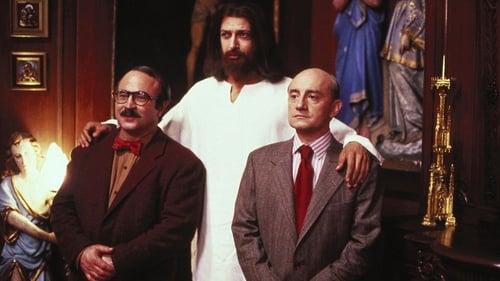
Novel
A farce, Hoskins plays a photographer who specializes in religious pictures who searches for a model for Jesus. He does a favor for a friend and finds himself doing a voice track for a porno movie with Natasha Richardson. Hoskins finds his model for Jesus in Jeff Goldblum and a romantic triangle begins in which Goldblum finds adoring crowds believing him to be Jesus and then begins to believe it himself.

Novel
Photographer Maurice Martin turns into a woman named Héloïse every night at 8 p.m.
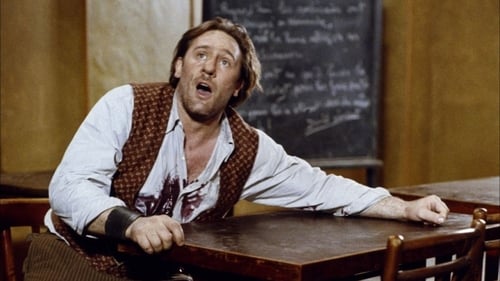
Novel
After World War II, a small French village struggles to put the war behind as the controlling Communist Party tries to flush out Petain loyalists. The local bar owner, a simple man who likes to write poetry, who only wants to be left alone to do his job, becomes a target for Communist harassment as they try and locate a particular loyalist, and he pushes back.
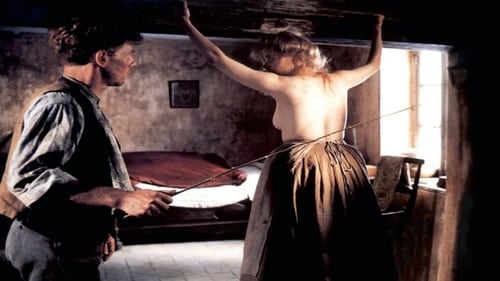
Novel
Arsène Muselier returns to his home village at the end of the First World War. His only injury is a head wound, which sometimes provokes periods of delirium and fury. As he renews his acquaintance with the people he left behind - his mother, the old farmhand who brought him up after his father's death, his former girlfriend, and many others - he becomes fascinated by the legend of La Vouivre, a creature with the body of a woman who lives in the marsh, surrounded by vipers. One day, Arsène sees the strange woman - she is naked, beautiful, alluring, and he is instantly enchanted by her. Can she be real, or is she merely a creation of his damaged mind...?

Writer
A man learns one night that he can walk through walls, and uses this skill to get back at a nasty new boss, to rob banks, and to romance an overly protected lady.

Writer

Author

Writer
Prosecutor Maillard can rejoice: he has just obtained the death sentence of an accused accused of murder. It is the third head he gets at the assizes. There followed an evening of rejoicing with his wife and friends, including the prosecutor Bertolier. The latter's wife is Maillard's mistress. The lovers left alone, the condemned man, Valorin, burst into the room. He managed to escape during his transfer to the remand center. Valorin immediately recognized Bertolier's wife. And for good reason: at the time of the crime, they were together in a brothel. Stunned by the miscarriage of justice he has just committed, Maillard then tries to rehabilitate Vallorin while trying to avoid a scandal in the judiciary. He then calls Bertolier to the rescue. Valorin is opportunely killed "accidentally" and ... everything will go back to "order".

Author
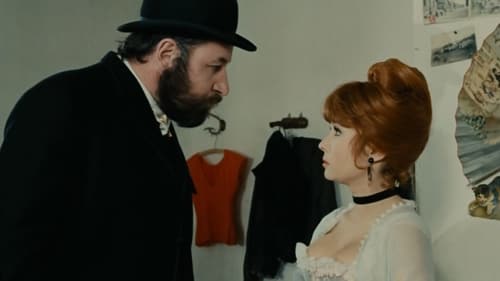
Theatre Play
When a cruel man is visited by Saint Francis and convinced to change his ways, his family believes him to be insane and locks him away in order to sell his beloved castle

Dialogue
Pétepan learns that his money has been lost by Robinhoude brothers.He asks his assistants to withdraw his amount from the bank.

Author
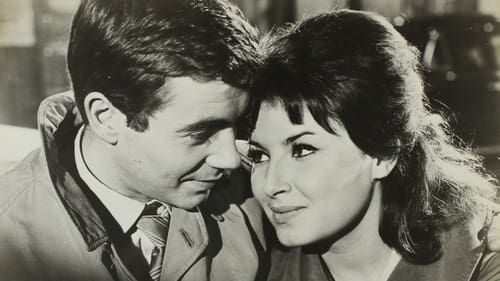
Writer
The seven stages in the life of the modern Frenchwomen are disclosed by seven directors in a witty way: 1 - Childhood, 2 - Adolescence, 3 - Virginity, 4 - Marriage, 5 - Adultery, 6 - Divorce, 7 - The Single Woman.
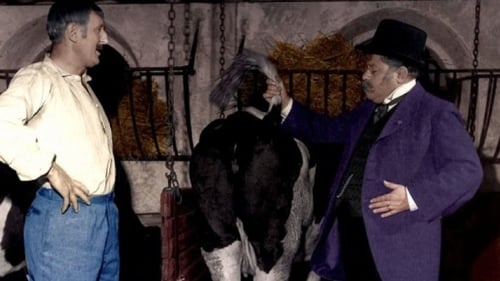
Writer

Writer
Mr. Buchsbaum, third class taxes employee, lives a peaceful life until the new chief immediately criticizes his work. His only confort is his stamps collection. Sadly, even this consolation and his peace are threatened by a new, charming, neighbour who teaches piano.
Increasingly infuriated, he discovers accidentally one evening that he has the ability to go through walls. With this power, he decides to settle the scores, firstly with his boss who downgraded him.
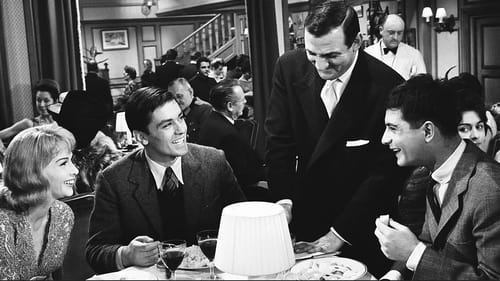
Novel
This movie is a Marcel Aymé adaptation and it deals with the not-so-glorious side of the Occupation: black market, war profiteers, cracking open bottles of Champagne while most of the Parisians are almost starving.
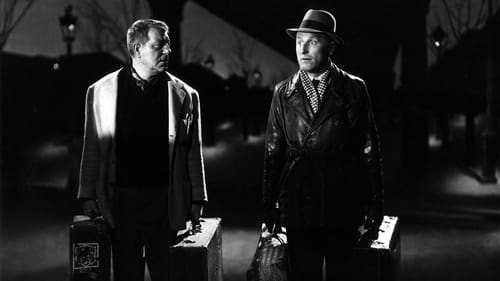
Novel
Two unlikely companions must smuggle four suitcases filled with contraband pork across Nazi-occupied Paris.
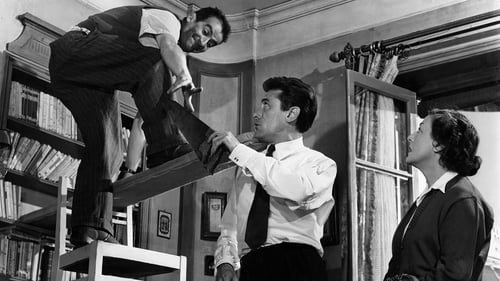
Writer
Robert Langlois is now married to Catherine, the former housemaid. And they would live happily ever after if the housing crisis did not force them to live together with Gabrielle and Fernand, Robert's parents. For, despite the good will on either side, tension soon arises. What else to expect when there is too little space in their Montmartre apartment for four people (then for six then eight, the couple having... two pairs of twins!) ; the continued presence there of Fernand (who loves peace and quiet) after he is driven to retirement ; the difficult beginnings of Robert as a lawyer in a room of the apartment, etc... Other troubles follow and the harried family is on the verge of implosion...
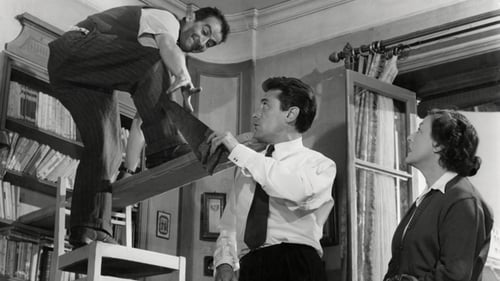
Writer

Novel
In Cantagrel, Urbain Coindet, a farmer and town councilor in his forties, finds his wife hanging from a beam in the barn. Aurélie Coindet has committed suicide but not everybody is convinced. The village is soon divided in two conflicting sides, the Republicans who support Urbain and the clericals accusing him of murder, which particularly suits Frédéric, a tobacco smuggler who hates the farmer. Urbain's case becomes even worse as he develops a tender feeling for Jeanne, a sweet young lady who happens to be Frédéric's sister...

Writer
A person who had usurped the identity of a famous writer of detective stories was killed in the train. Why and by whom?

Screenplay
A young man comes back to his hometown to be confronted with a bourgeois obnoxious family who has always despised his -now dead - parents because they were music hall artists, "entertainers". But because he's the sole legatee of an uncle's fortune, his relatives become friendly with him.. at least for a while.

Writer
A student from an elementary school accidentally breaks the glass roof of his school. His comrades decide to support it by working during the summer holidays in order to pay for reconstruction.

Writer
As playboys cannot pay their debts anymore,their creditors suggest one of them marry a millionaire's daughter.

Dialogue
A journalist takes command of a ship after the crew mutiny against the brutal captain. It was an adaptation of the novel The Mutiny of the Elsinore by Jack London.

Dialogue
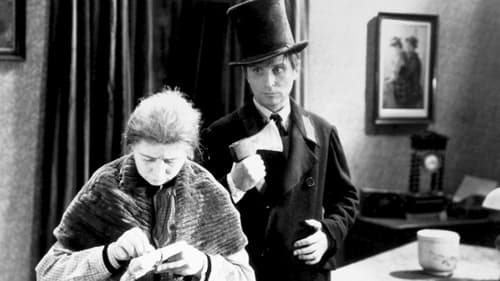
Dialogue
Pierre Chenal's adaptation of Dostoyevsky's novel, starring Pierre Blanchar and Harry Baur. Bears the influence of German Expressionism and serves as an early forerunner of poetic realism.

Writer
The story focuses on a street in the Parisian banlieue where Italian and French workers live. Their neighborhood will soon be demolished and a mysterious character hides himself in this street.






















